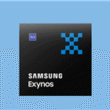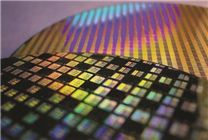Key Points Summary
- SoftBank Group is exploring the potential acquisition of Marvell Technology to enhance its semiconductor capabilities in the AI data center market.
- Negotiations have paused due to disagreement on terms, but the possibility of resuming talks remains open.
- If successful, this acquisition could mark a historic moment in the semiconductor industry, presenting both opportunities and regulatory challenges.
SoftBank’s Strategic Acquisition: A Move Towards AI Dominance
On November 7, reports emerged that SoftBank Group is actively considering the acquisition of American chip design firm Marvell Technology. This strategic move aims to merge Marvell with SoftBank’s semiconductor powerhouse, Arm, to create a formidable player in the AI data center sector.
Negotiations for this potential acquisition hit a stalemate a few months prior, primarily due to disagreements over the deal’s terms. Despite the current halt in discussions, the future of this transaction remains uncertain yet promising. If completed, it could become the most significant acquisition in the history of the semiconductor field.
This news positively impacted Marvell’s stock, which saw a rise of over 5% during U.S. trading on November 6. Conversely, Arm’s stock initially opened higher but later fell, closing down 1.21%.
Marvell Technology: An Overview
Founded in 1995, Marvell initially gained recognition for its storage controllers and mobile chips before shifting its focus to the network and communications chip market amid the competitive 4G mobile landscape. Today, the company offers a wide array of products, including Ethernet solutions, switches, and custom application-specific integrated circuits (ASICs). Notably, approximately 74% of Marvell’s revenue is derived from data center-related operations, emphasizing its importance in the AI and automotive sectors.
SoftBank’s founder, Masayoshi Son, has long viewed Marvell as a critical target in the realm of AI strategy. The intent behind this acquisition is to leverage Marvell’s expertise in data center processors and AI chips alongside Arm’s extensive ecosystem in CPU and GPU intellectual property (IP). This would create a comprehensive and closed-loop capability that spans from IP licensing to chip design, enhancing competitive advantages in a rapidly evolving market.
Market Dynamics and Opportunities
Arm’s IP dominance in the smartphone sector is steadily expanding into the data center arena. Predictions indicate that by 2025, CPUs based on Arm architecture will account for nearly 50% of the data centers utilized by major cloud service providers. However, while Arm holds a significant market position, it lacks comprehensive in-house chip design experience, an area where Marvell excels.
In addition to Marvell, SoftBank’s strategic landscape may include Ampere Computing—a server processor design firm acquired for $6.5 billion in March of this year. Integrating Ampere’s technology could further bolster SoftBank’s competitive edge within the data center marketplace.
Challenges Ahead: Regulatory and Integration Hurdles
Despite the potential benefits, several challenges loom over this acquisition. Antitrust scrutiny is a primary concern, given the regulatory sensitivities post-Nvidia’s failed attempt to acquire Arm. There is a heightened risk that regulatory agencies in various countries may closely examine this transaction. Additionally, Marvell, as an American chip firm, may encounter further scrutiny from the U.S. government if purchased by a Japanese entity.
Complicating matters further are uncertainties concerning team integration and the coordination of customer relationships between the two firms. These elements pose risks that could hinder operational synergies post-acquisition, an issue that potential investors will need to consider in the broader context of the deal’s viability.
As of now, representatives from SoftBank, Arm, and Marvell have not offered comments on these evolving market conversations. The outcome of this prospective acquisition has the potential to reshape the semiconductor landscape significantly; therefore, stakeholders are advised to monitor developments closely.
In conclusion, the intersection of SoftBank, Arm, and Marvell represents a strategic maneuver aimed at establishing dominance in the AI data center market. The confluence of technological know-how, substantial market share, and the appetite for innovation could propel these entities into a competitive future—if navigated successfully amid the challenges that lie ahead.








